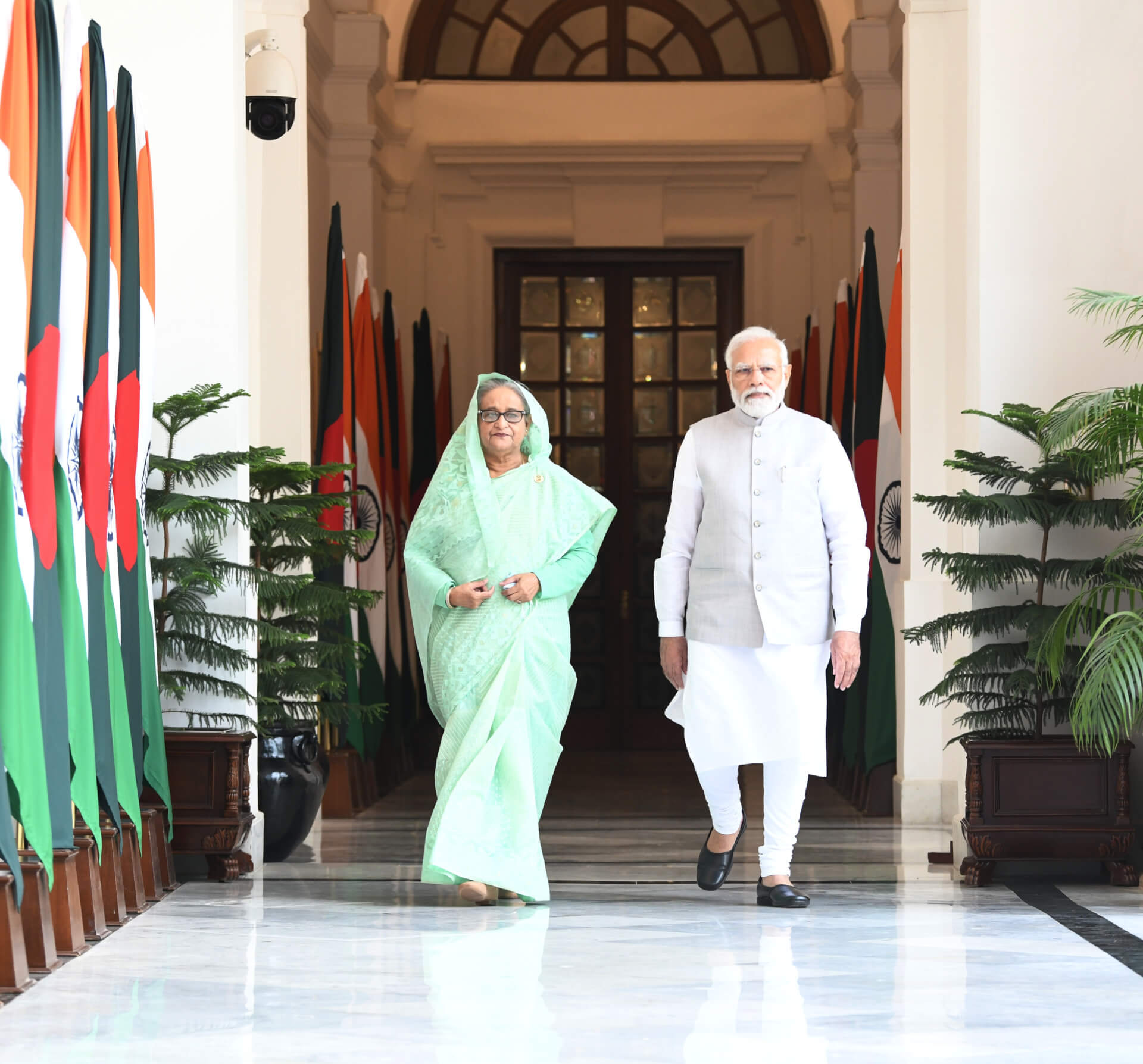A day after Bangladeshi Prime Minister (PM) Sheikh Hasina said “problems” with India could be resolved through dialogue, the two countries signed a water-sharing agreement on the Kushiara River.
State Minister for Ministry of Foreign Affairs Shahriar Alam said the agreement will allow Bangladesh to withdraw 153 cusecs of water from the river, describing it as a “big achievement.”
Furthermore, he expressed hope that the deal would pave the way for a similar agreement to resolve the decades-long Teesta River dispute. Hasina, too, appeared optimistic about such an outcome, describing bilateral relations between the two countries as the “role model for neighbourhood diplomacy.” Her Indian counterpart Narendra Modi, too, said their friendship would “touch new heights” over the next 25 years.
Such developmental cooperation will add vigour to the India-Bangladesh friendship. https://t.co/VHO9JLq2Ho
— Narendra Modi (@narendramodi) September 6, 2022
In this regard, the two sides inaugurated, announced, and unveiled a number of new projects, including the Maitree Thermal Power Plant in Khulna, the Rupsha bridge, the Khulna-Darshana railway line, and the Parbatipur-Kaunia railway line.
In fact, Hasina and Modi signed a total of seven memorandums of understanding (MOUs) on water-sharing, railways, science and industry, space technology, and broadcasting. India also agreed to train Bangladeshi judicial officers.
Earlier today, I had excellent discussions with PM Sheikh Hasina in New Delhi. Bangladesh is a major trade and development partner of India. We cherish the people-to-people linkages between our nations. During our talks we reviewed the full range of bilateral relations. pic.twitter.com/MYDEEcHtGK
— Narendra Modi (@narendramodi) September 6, 2022
The pair jointly inaugurated the Maitree the Maitree Thermal Power Plant, a 1320 Megawatt coal-powered plant for which New Delhi is providing $2 billion under its Concessional Financing Scheme.
The pair also spoke about the global impact of the COVID-19 pandemic as well as the Russia-Ukraine war, which has impacted energy and food security across the world.
In this regard, Modi said, “Rising energy prices are presently posing a challenge to all developing countries. The unveiling of the first unit of Maitree Thermal Power Plant today will increase the availability of affordable electricity in Bangladesh.”
The pair also discussed security cooperation, investment, trade relations, and energy and power linkages.
Furthermore, Hasina and Modi spoke about the Rohingya refugee crisis, with both leaders expressing their support for repatriation to Myanmar. Hasina, in fact, said this is the “only solution” to the problem.
On her State Visit to India, HE PM Sheikh Hasina was received by PM Narendra Modi and was then accorded a ceremonial welcome with guard of honour today at the magnificent forecourt of Rashtrapati Bhavan.@PMOIndia @DrSJaishankar @MEAIndia pic.twitter.com/VzQPDVWiAl
— India in Bangladesh (@ihcdhaka) September 6, 2022
Speaking after Hasina’s meeting with Indian External Affairs Minister S. Jaishankar on the first day of her visit, Senior Foreign Secretary Masud Bin Momen said that Jaishankar reassured her that New Delhi is “keeping an eye on the unrest being created” in Myanmar’s Rakhine state, which is home to a large number of Rohingya.
India is concerned about the conflict in Myanmar’s Rakhine state spilling over into its borders, given that neighbouring Bangladesh houses roughly one million Rohingya refugees in camps. These concerns are amplified by the extremely poor living conditions in these camps.
Modi and Hasina also discussed the importance of combatting cross-border crimes such as drug and human trafficking. India has previously noted that the highest number of cross-border incursions into the country occur along its 4,095-kilometre-long border with Bangladesh.
Of this, 1,116 kilometres rest along their 54 shared rivers, which has resulted in numerous water disputes, particularly over the Teesta River.
In an address following her meeting with Modi, Hasina lauded India as Bangladesh’s “most important and closest neighbour.” She stressed that cooperation between the two countries is critical for the peace and prosperity of the region.
"Whenever I come to India, it's pleasure for me, especially because we always recall the contribution India has made during our liberation war," says Bangladesh PM Hasina pic.twitter.com/Xmi4AMzf1X
— Sidhant Sibal (@sidhant) September 6, 2022
Bilateral trade between India and Bangladesh has grown from $9 billion to $18 billion over the last five years, with Bangladesh becoming India’s largest trade partner in South Asia and its fourth-largest export destination. It is also India’s number one development partner, with contracts totalling over $2 billion.
Modi revealed that the two countries will also begin discussions on a Bilateral Comprehensive Economic Partnership Agreement.
Later in the day, Hasina met with Indian President Droupadi Murmu and Vice President Jagdeep Dhankar.

